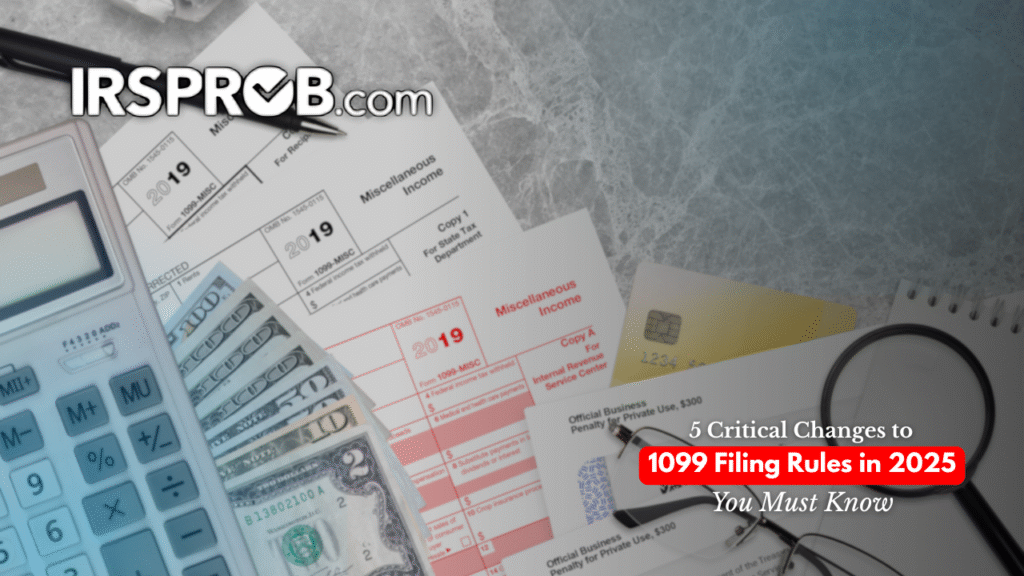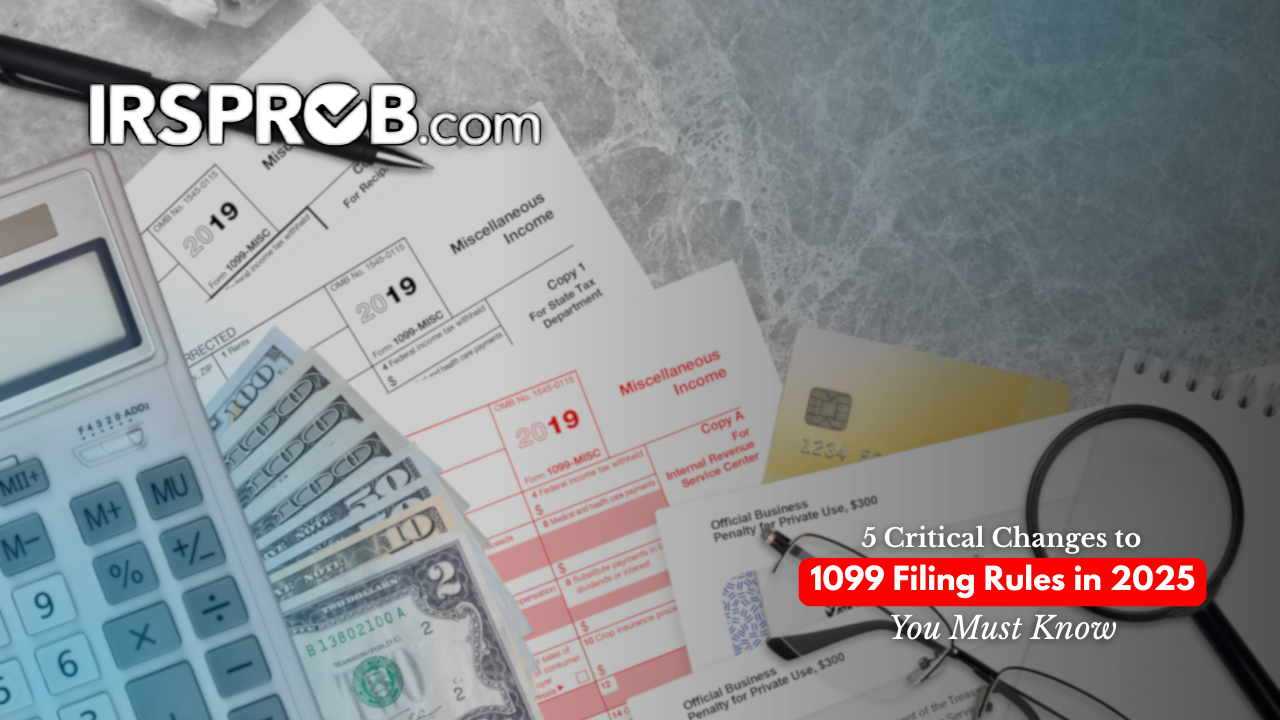
If you’re a business owner or an independent contractor, you’re likely familiar with 1099 filing. These forms are used to report income, and understanding the latest changes to these filing requirements is crucial for staying compliant. With the passage of the One Big Beautiful Bill Act (OBBBA), the IRS has introduced significant modifications that will affect how you report payments to independent contractors. Let’s dive into the key changes and what they mean for you.
What Are the New 1099 Filing Rules?
The new 1099 filing rules established by the OBBBA will reduce the number of forms filed by businesses, but there are some critical updates you need to be aware of. Whether you’re a freelancer, contractor, or business paying for services, these updates will affect your tax filings moving forward.
$2,000 Filing Threshold for 1099-NEC
Historically, businesses were required to file Form 1099-NEC when payments to independent contractors reached $600 or more. With the new rules, starting in 2026, that threshold increases to $2,000. This is a significant change that will reduce the burden on businesses to file 1099 forms for smaller payments.
In addition, the new $2,000 threshold will be adjusted for inflation starting in 2027, ensuring that it remains relevant in the face of economic changes.
Third-Party Payment Processors and 1099-K
Another key change revolves around how payments made through third-party payment processors like PayPal, Venmo, and CashApp are reported. Under the OBBBA, businesses no longer need to file a 1099-NEC if the contractor is paid through a third-party processor, provided the payment exceeds the threshold.
Instead, the third-party processor will handle the 1099 filing for you through Form 1099-K, but only if the recipient’s payments exceed $20,000 or the recipient has 200 or more transactions.
Reverted 1099-K Reporting Thresholds
Prior to the OBBBA, the IRS planned to lower the 1099-K filing threshold to $600 in 2022. However, the IRS postponed this plan, and the OBBBA has officially reverted the 1099-K reporting requirement back to the $20,000/200 transactions threshold for 2025 and beyond.
If you’re a business that utilizes third-party processors for payments, this change is a welcome relief, as it reduces the number of forms you need to worry about. But if you don’t meet the $20,000/200 transactions threshold, there’s no need for the processor to file a 1099-K form.
What About State Filing Rules?
While the OBBBA focuses on federal rules, some states have their own specific requirements for 1099 filing. For example, states like Rhode Island and Massachusetts have their own 1099-K thresholds that are lower than the federal threshold. If you do business in these states, you’ll need to stay aware of both federal and state requirements to avoid penalties.
Here are some examples of state-specific filing thresholds:
- Arkansas: $2,500
- District of Columbia: $600
- Illinois: $1,000 and 4 or more transactions
- Rhode Island: $100
State-Specific Considerations
If your business operates in states with lower filing thresholds, you may find yourself required to file forms that you would not otherwise need to file under federal rules. This means it’s critical to know the state-specific requirements that could affect your reporting.
Why Is This Change Important?
These changes to the 1099 filing rules will have a significant impact on businesses, contractors, and third-party processors alike. Let’s look at why this matters:
- For Businesses: The increase in the filing threshold means fewer 1099 forms need to be submitted. This reduction in paperwork simplifies the process and lessens the administrative burden.
- For Independent Contractors: Fewer 1099-NEC forms will be filed, but this does not mean that income reporting will be eliminated. Independent contractors still need to report all income, regardless of whether it’s reported by the business or a third-party processor.
- For Third-Party Processors: Payment processors like PayPal will play a more significant role in reporting, taking some of the responsibility off the business owner’s shoulders. However, businesses still need to ensure that third-party processors are reporting accurately.
Potential Penalties for Non-Compliance
With the new rules in place, it’s important to stay compliant to avoid costly penalties. If you fail to file a 1099-NEC or 1099-K when required, the IRS can impose fines of up to $310 per form. The penalties increase to $660 per form if the IRS determines the failure was due to intentional disregard.
In addition to monetary fines, misclassifying workers as independent contractors rather than employees could also result in double the penalties if the IRS audits your business. Proper classification and timely filing are key to avoiding these penalties.
Quick Summary of the OBBBA’s 1099 Filing Changes
- The new $2,000 threshold for 1099-NEC filing takes effect in 2026, reducing the number of forms businesses need to file.
- Third-party payment processors like PayPal and Venmo are responsible for filing Form 1099-K if payments exceed the $20,000/200 transactions threshold.
- 1099-K reporting reverts to the $20,000/200 transactions threshold in 2025.
- Some states have their own 1099-K thresholds, which may be lower than the federal threshold.
- Penalties for non-compliance can include significant fines and even double penalties for misclassification.
Common Questions: Answering Your 1099 Filing Questions
Final Note from IRSPROB.com
These changes to 1099 filing rules will impact how businesses and contractors report their income starting in 2025. By understanding these updates and preparing for them now, you’ll be in a better position to stay compliant and avoid costly penalties.







